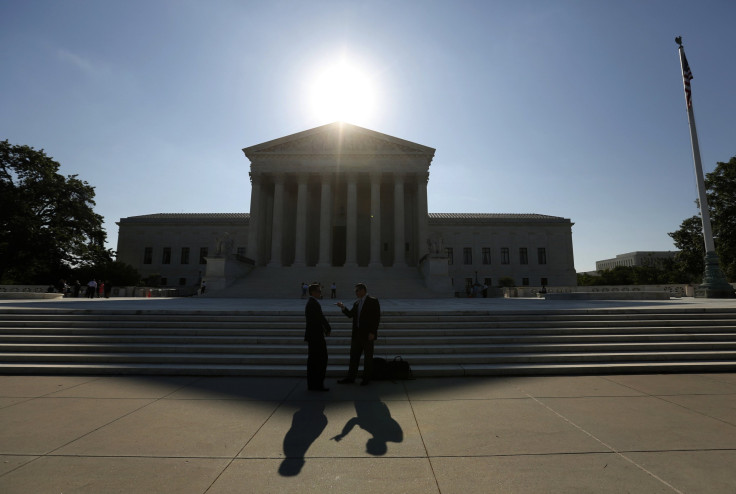Supreme Court Limits Power Of Unions To Collect Fees

In a 5-4 ruling, the U.S. Supreme Court ruled on Monday that partial public employees can't be required to contribute to unions.
In Harris v. Quinn, the National Right to Work Foundation sued Illinois Governor Pat Quinn and the Service Employees International Union, reports the Chicago Tribune. Quinn had signed an executive order to make all home health care workers public employees in 2003. According to NRWF, whose "mission is to eliminate coercive union power and compulsory unionism abuses through strategic litigation, public information and education programs," the executive order signed by Quinn forced 20,000 personal care providers who received funding from the state to become public employees and pay union dues.
The 7th U.S. Circuit Court of Appeals rejected the National Right to Work Foundation's lawsuit, citing a 1977 Supreme Court precedent, notes the Chicago Tribune. The Supreme Court ruling does not affect full union members, but the justices ruled the payment of dues by nonunion members violated their First Amendment rights, reports the Associated Press.
Justice Samuel Alito wrote the majority opinion, concluding, "If we accepted Illinois’ argument, we would approve an unprecedented violation of the bedrock principle that, except perhaps in the rarest of circumstances, no person in this country may be compelled to subsidize speech by a third party that he or she does not wish to support. The First Amendment prohibits the collection of an agency fee from personal assistants in the Rehabilitation Program who do not want to join or support the union."
In Monday's decision, the Supreme Court did not overturn Abood v. the Detroit Board of Education, the 1977 precedent that states unions could collect dues for nonpolitical activities, reports Reuters.
Justice Alito's full opinion can be read below.
Harris v. Quinn by Doug Mataconis
© Copyright IBTimes 2024. All rights reserved.












